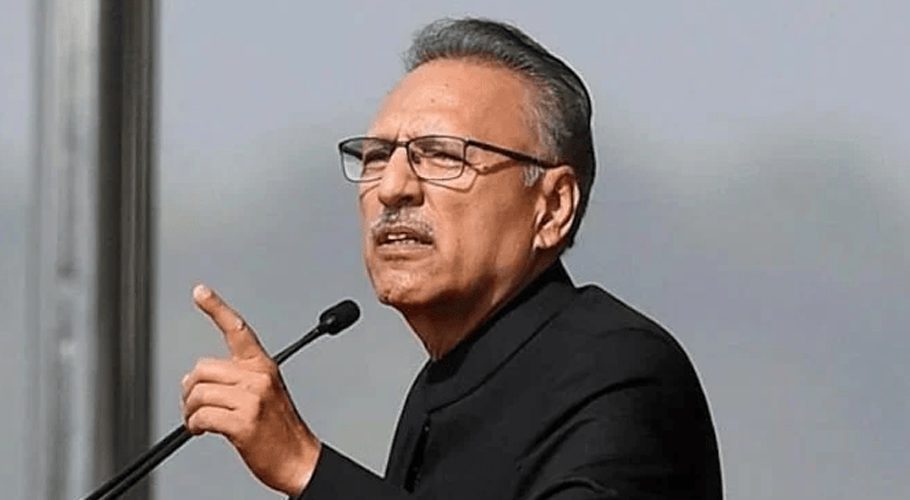On the 21st of August, a shocking piece of news came with President Arif Alvi’s tweet, in which he pledged before God that he did not sign the Army Act Amendment Bill and the Special Secret Act Amendment Bill with a firm statement. He ordered his staff to resend these bills to the assembly. His staff repeatedly stated that these bills were sent back, and he kept asking them the same question. He received the same answer that the bills were sent back, and suddenly it was discovered that these bills have become law. In the same tweet, the President also asked for forgiveness from God and from those who might possibly be affected by these laws in the future.
Background
Remember that amending the Army Act expands the powers of the army, allowing it to work in various fields including agriculture, and some other sectors. On the other hand, amendments to the Special Secret Act provide not only significantly more authority to institutions but also the possibility of using these amendments to initiate cases against Imran Khan and other leaders of the Pakistan Tehreek-e-Insaf (PTI) party.
President and Article 75
Article 75 of the Constitution states that when the assembly passes a bill and sends it to the President, he has two options. He either signs the bill and it becomes a law, or if he has objections or believes it is contradictory to the constitution, he can send it back to the assembly within ten days, except for budget bills. The bill is sent back to the assembly, and if the assembly passes it again in its joint session, it comes back to the President. This time, the President must sign it within ten days, regardless of his opinion.
Current situation
At present, the assemblies have been dissolved. Those bills that President sent back to the assembly are still pending there. It will take around nine months for the elections and the new assembly to form. Until then, these bills will remain in the assembly secretariat.
Thirteen Other Bills
Thirteen bills were already sent back to the assembly by the President. These bills include various types of matters, including university charters. The fate of these bills will now be decided by the new assembly. If the President had specific objections, he would review these points. If deemed appropriate, he can either approve or reject them.
What is the President’s Claim?
The President’s tweet clarifies that just like the thirteen other bills, he had sent back the Army Act and the Special Secret Act without signing them. However, his staff deceived him and kept the bills instead of sending them back, until the stipulated time had passed and they became laws. According to the President’s claim, he kept asking about these bills, and his staff repeatedly assured him that the bills were sent back.
A Major Crisis
The President’s claim itself is a significant national crisis. Arif Alvi, who, according to his position, is the Supreme Commander of the armed forces, and the head of the country, is now in a situation where his staff is not following his instructions. They are withholding a specific bill and not following his repeated orders. This situation raises questions about our entire state structure, constitution, laws, and government procedures. The extent to which this could embarrass or disgrace Pakistan at an international level cannot be underestimated. India and other Pakistan-opposing countries might take advantage of this crisis for their own propaganda.
Ministry of Law’s Claim
The Ministry of Law has issued a press release on this matter, refuting the President’s position. They state that Article 75 of the Constitution only requires the President to send the bill back, not to write objections and send them. The President can choose whether to do so or not. Many legal experts hold the same opinion.
One Question
One question that arises is, among the thirteen bills that the President sent back, which ones were sent back with separate objections or memos? If not writing separate objections on each bill is enough for a bill to become a law, then why weren’t these thirteen bills made into laws? Was it to avoid anyone benefiting from them or using them against the PTI?
A Crisis in the Making
This crisis is escalating. It seems that a clash between the caretaker government and the President is inevitable. By tonight, the Cabinet’s position is expected to be released, and most likely, it will be against the President. The legal experts have already expressed their views.
Is an Impeachment Possible?
Constitutionally, an impeachment process can be initiated against the President for any form of misconduct, but he cannot be removed from office without due process. The Constitution has a procedure for the impeachment of the President, which requires a two-thirds majority in the parliament. The National Assembly is not present right now. Thus, it’s impossible to initiate impeachment proceedings.
However, the President’s term is ending in September. Constitutionally, until the new assembly is formed, the current President can work as Acting President. After this crisis, there is a strong possibility that he may be removed from office, and Chairman Senate Sadiq Sanjrani could serve as the Acting President. However, if President Arif Alvi stands firm, this process won’t be easy.
What’s the Solution to the Crisis?
While the sanctity of the President’s term is crucial, his claims need to be substantiated. However, the Supreme Court can take suo motu notice of this matter. The larger bench of the Supreme Court can hear this matter and restore the President’s authority and prerogatives.



































